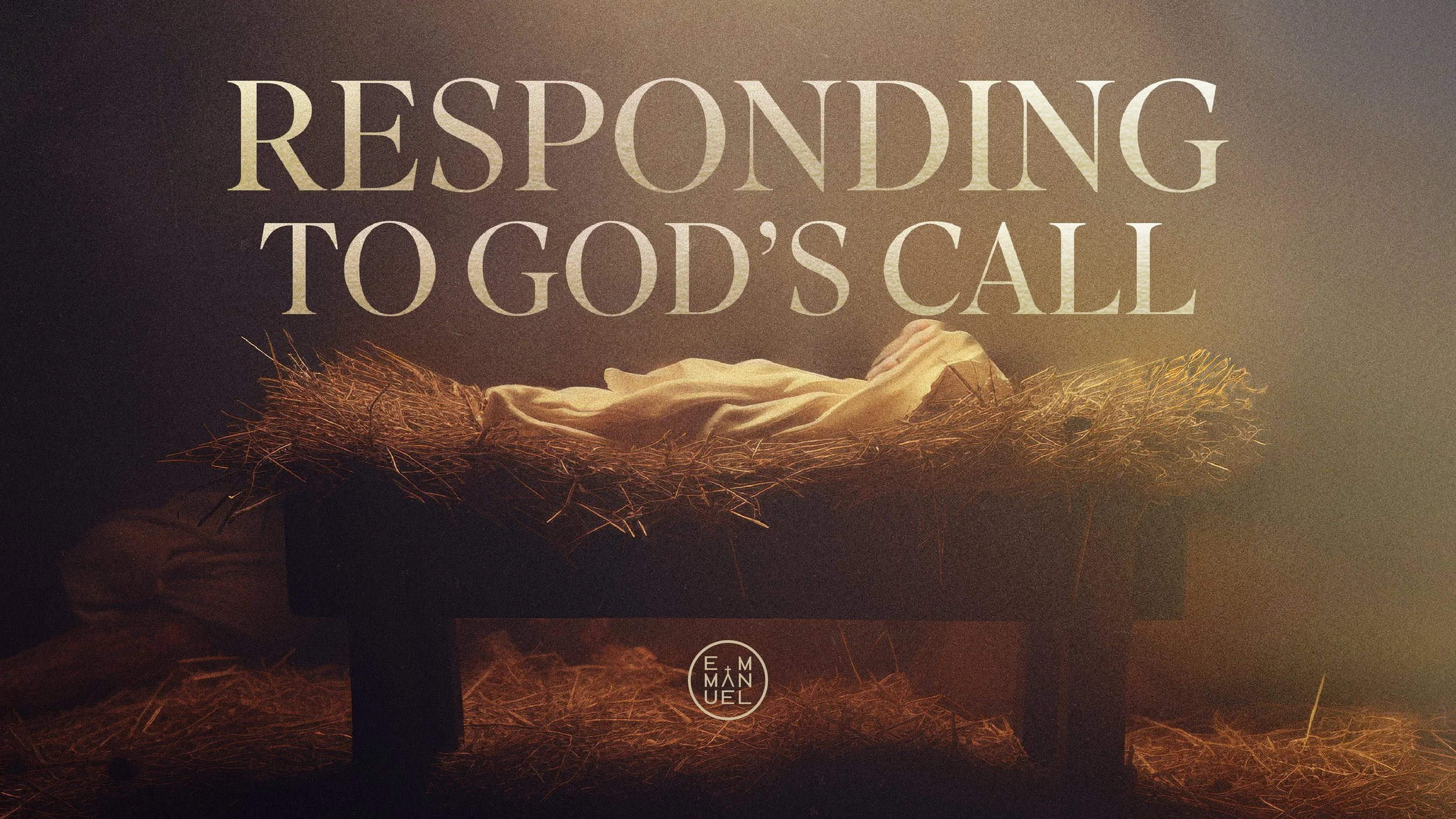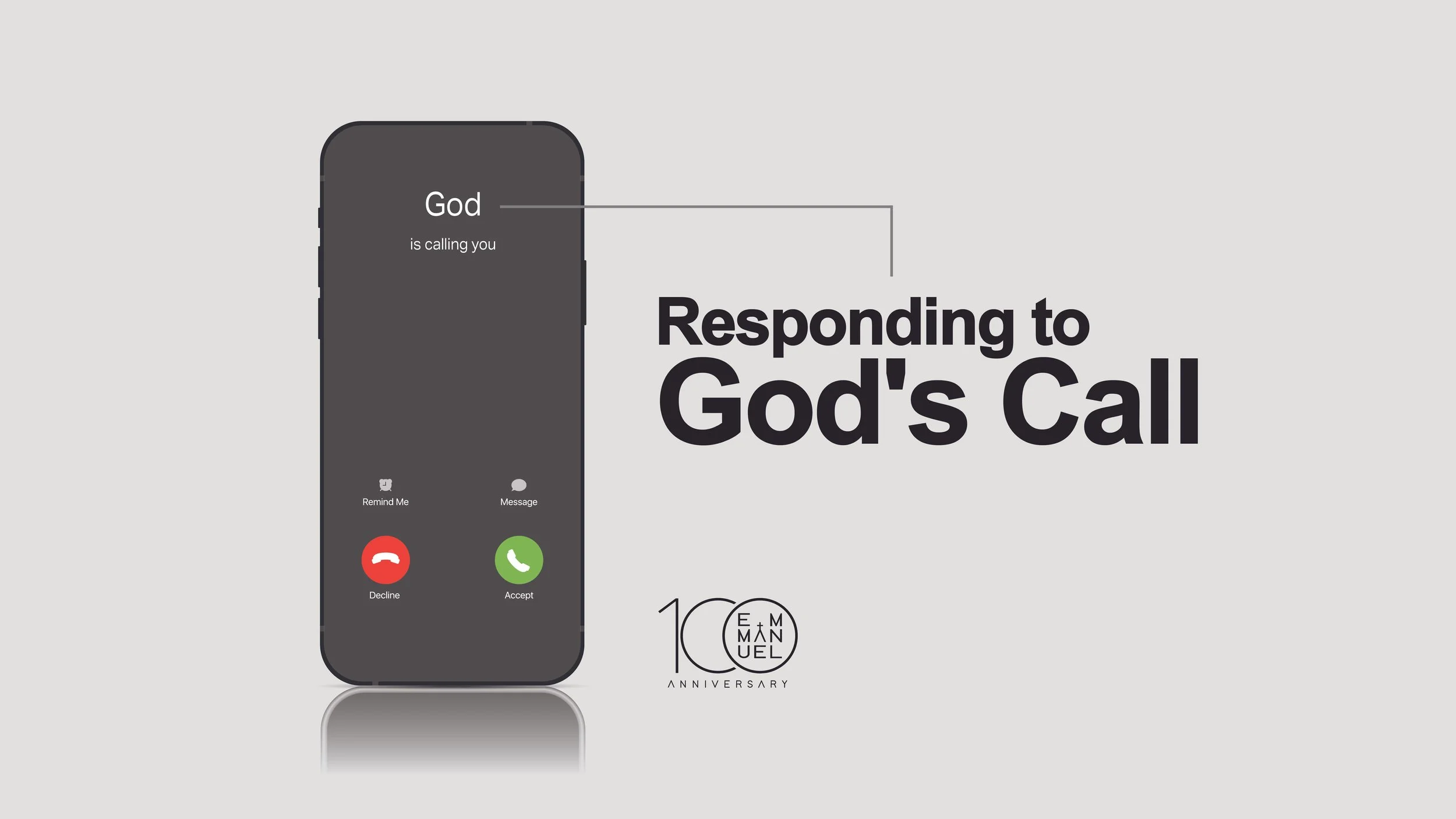Clear Eyes, Soft Hearts
This powerful teaching from Luke 6 challenges us to examine the lens through which we view others and ourselves. At the heart of this message is Jesus's famous illustration about the speck and the plank - a humorous yet piercing image that forces us to confront our blind spots. We're invited to consider a radical shift in perspective: instead of treating people based on how they treat us, we're called to treat them based on how God has treated us. This isn't about suspending moral judgment or abandoning discernment. Rather, it's about ensuring our discernment flows from love rather than condemnation. The passage reminds us that grace isn't just something we receive - it's meant to flow through us. When we truly grasp the mercy God has shown us through Christ's death and resurrection, we become conduits of that same mercy to others. The journey of removing the plank from our own eye isn't quick or painless, but it's essential for kingdom living. As we allow God to work on our hearts, we develop the fruit of the Spirit - patience, kindness, gentleness - not instantly, but through the very circumstances and people that challenge us most. This teaching calls us to a lifetime of repentance and belief, where we continually look in the mirror before looking at others.
Love Your Enemies
What if the most countercultural thing we could do isn't posting the right opinion or winning an argument, but actually loving the people who oppose us? This powerful teaching from Luke 6:27-36 confronts us with Jesus' radical command to love our enemies—not as a nice suggestion for better relationships, but as the very culture of God's kingdom. We're challenged to move beyond our natural instincts of rivalry and revenge, those same instincts that make us cheer when our sports rivals lose, and recognize how easily they seep into real life with coworkers, family members, and friends who've hurt us. Jesus strips away all our excuses by getting intensely practical: do good to those who hate you, bless those who curse you, pray for those who mistreat you. This isn't about feelings—it's about decisive action that flows from our identity as children of God. The golden rule takes on new meaning when we realize Jesus is asking us to treat our enemies the way we'd want to be treated at our worst. This teaching reveals that mercy isn't weakness; it's actually the strategy of heaven, the way God's kingdom advances on earth. When we show undeserved mercy, we become living testimonies that point others to Christ, making them wonder what kind of God we serve.
The Blessing is in the Belonging
This powerful message from Luke 6 turns our understanding of blessing completely upside down. We're challenged to reconsider how we measure what it means to be blessed—not by the size of our bank accounts, comfort levels, or social approval, but by something far more profound: belonging to Jesus Christ. Through Jesus' words to his disciples, we discover that the blessing isn't found in what we possess or lack, but in whose we are. The poor, hungry, weeping, and rejected are called blessed not because poverty or suffering are virtues in themselves, but because these conditions teach us radical dependence on God. When we can't rely on ourselves, we learn to trust Jesus completely. Meanwhile, the warnings to the rich, well-fed, and popular aren't condemnations of success, but sobering reminders that wealth and comfort can become dangerous idols that make us forget our need for God. The sermon uses antithetical parallelism—contrasting blessings with warnings—to sharpen the point: what we invest in matters eternally. Are we investing in temporary comforts that lose value quickly, or in the eternal kingdom of God? The ultimate blessing awaiting us is the beatific vision—seeing God face to face, every tear wiped away, every longing satisfied. This dual promise means God cares for us now in our struggles and has prepared an eternal inheritance that makes every earthly treasure pale in comparison.
The Healing You Need
This powerful exploration of Luke 5 reveals a profound truth: our problems run much deeper than we initially realize, and only Jesus can address them at their core. Through the encounters with a leper and a paralytic man, we discover that Jesus doesn't just apply surface-level fixes—He performs open heart surgery on our souls. The leper's cry of 'unclean, unclean' mirrors our own shame and guilt, yet Jesus reaches out and touches the untouchable, entering into our mess with compassion and authority. What's striking is that when friends lowered a paralytic through the roof seeking physical healing, Jesus first addressed the invisible wound: 'Your sins are forgiven.' This wasn't a deflection—it was divine diagnosis. Jesus recognized that our greatest enemy isn't physical limitation or social isolation, but sin itself. Like spiritual leprosy, sin deadens our hearts, desensitizes us to God's voice, and isolates us from true community. The message challenges us to dig beneath our surface struggles—our unhealthy coping mechanisms, our workaholism, our moral compromises—to the root issue: Do we truly trust that God is as good as He says and knows what's best? This isn't just ancient history; it's an invitation to bring our deepest needs to Jesus with both humility and boldness, knowing He is willing to make us clean.
Good News They Hated
We encounter a profound truth in this exploration of Luke 4: sometimes the best news is the hardest to hear. When Jesus returned to his hometown synagogue and read from Isaiah 61, he proclaimed liberation for captives, sight for the blind, and freedom for the oppressed. Yet he stopped mid-verse, leaving out the part everyone wanted to hear—the day of God's vengeance against their enemies. What follows is a masterclass in understanding our deepest need. Jesus wasn't primarily talking about political freedom from Rome or economic relief, though those matter. He was addressing something far more fundamental: our spiritual poverty. The widow of Zarephath and Naaman the Syrian become our teachers—both Gentiles, both outsiders, both spiritually humble enough to recognize their need. The shocking message? We cannot save ourselves. We must become like those we consider spiritually inferior, acknowledging our own brokenness before God. This is why the crowd went from praising Jesus to wanting to throw him off a cliff. He exposed their entitlement, their belief that showing up to synagogue made them superior. The kingdom of God, we learn, is for the spiritually poor—those who tremble at God's word and recognize their desperate need for him. When our hearts are truly changed by this reality, everything else follows: our homes, our cities, our world.
Who Are You, Really?
In Luke 4, we encounter Jesus at a pivotal moment—freshly baptized, affirmed by the Father's voice declaring 'This is my Son whom I love,' and now led by the Spirit into the wilderness for 40 days of testing. This passage invites us into a profound understanding of the difference between testing and temptation. God tests us not to destroy us but to develop us, to reveal what's truly in our hearts and strengthen our faith. Satan, however, tempts us to pull us away from God's truth. What's striking is that Satan's first attack targets Jesus' identity—'If you are the Son of God'—attempting to undermine what the Father just affirmed. This reveals a crucial spiritual truth: the enemy will always come after our identity in Christ first, because if he can shake our understanding of who we are in God, everything else crumbles. Jesus responds by quoting Deuteronomy, declaring that His love for God and God's love for Him is more real than the hunger in His belly. We learn that our identity isn't rooted in what we do or accomplish, but in our relationship with God. Before Jesus performed a single miracle or preached a single sermon, He was already loved and affirmed by the Father. The same is true for us—we are loved before we perform, before we achieve, before we prove ourselves worthy. When we grasp this truth, it transforms how we pray, how we treat others, and how we face the tests and temptations that inevitably come our way.
The Baptism & Genealogy of Jesus
We live in a world obsessed with proving ourselves, constantly measuring our worth by what we accomplish. But what if our identity was never meant to be earned? In Luke chapter 3, we encounter a stunning moment at the Jordan River where Jesus steps into the waters for baptism. Before He preaches a single sermon, before He heals anyone, before He performs any miracles, the Father speaks from heaven: 'You are my Son, whom I love. With you I am well pleased.' This declaration reveals three profound truths that anchor our faith. First, we witness the Trinity in perfect unity—Father speaking, Son obeying, Spirit descending—inviting us into divine fellowship. Second, we discover that identity precedes activity; we are loved not for what we do, but for whose we are. Third, the genealogy that follows traces God's faithfulness through 42 generations of broken people and messy stories, proving that His promises never fail. When the enemy attacks us, he targets our identity first, just as he did with Jesus in the wilderness. But when we rest in who God declares us to be—His beloved children—we stand unshakeable. This message challenges us to stop striving for approval we already possess and to trust in a God whose faithfulness spans from Adam to eternity.
Shepherd’s Response
This message takes us deep into the heart of what true worship really means by examining the beautiful encounter between angels and shepherds in Luke 2. We discover that worship isn't about manipulating God into action through our performance or passion—it's our response to what He has already done. The pattern is clear: heaven inspires, and humanity mirrors that inspiration. God moves first, speaks first, acts first, and we get to respond. The shepherds weren't chosen because they were important or holy; they were society's outcasts, ritually unclean and considered unreliable. Yet God chose them to receive the greatest announcement ever given to humanity. This reveals something profound about grace—salvation is personal, offered specifically 'to you,' wrapped with your name on it. The angels didn't wait for the shepherds to pray harder or live better; they simply proclaimed what God had done. And the shepherds' response? They went, they saw, they believed, and then they became an earthly echo of heaven's song. This challenges us to examine our own worship: Are we trying to activate God's presence, or are we responding to His presence that's already active? Are we in a dialogue with Him, or just delivering monologues? The call is to live in constant worship—not on our knees 24/7, but rejoicing, praying, and giving thanks in all circumstances, letting our entire lives sing the song that heaven has already begun.
Baptism of the Holy Spirit and Fire
This powerful exploration of Luke chapter 1 invites us into the radical message of John the Baptist: repentance as a gift rather than a burden. We discover that repentance isn't merely an intellectual exercise or empty religious ritual—it's a transformative journey from mind to heart to life. The Greek word 'metanoia' reveals this beautiful progression: a change of mind that leads to a change of heart that ultimately transforms how we live. What makes this message so compelling is the reminder that God's forgiveness isn't partial, pending, or performance-based. It's full, free, fast, final, and forever. When John preached about preparing the way for the Messiah, he wasn't calling people to earn their salvation through good works—he was pointing them toward the tender mercy of a God who delights in reconciliation. The message challenges us to examine when we last truly repented, not out of fear or obligation, but in response to God's overwhelming goodness. We're reminded that genuine repentance produces fruit, not as proof of our worthiness, but as evidence of God's transforming work within us. The call isn't to try harder through sheer willpower, but to participate with the Holy Spirit who empowers us from within and upon us for service.
The Gospel of Christ
This message takes us into the extraordinary moment when Mary receives the news that she will bear the Son of God, and her simple yet profound response: 'Let it be to me according to your word.' We're invited to examine three movements of faith that should characterize every believer's life. First, we encounter the pure gospel—God's initiative, not our earning. Mary did nothing to deserve this honor; God simply chose her, sent His angel, and promised that the Holy Spirit would overshadow her. This is grace in its purest form. Second, we see Mary's response of surrender and reception. She calls herself the 'handmaid of the Lord,' the lowest position, and opens her life to receive Christ. This wasn't easy—it brought misunderstanding, hardship, and ultimately watching her son die. Yet she said yes. Third, we witness Mary's immediate movement toward community. She hurries to Elizabeth, and when these two Spirit-filled women meet, joy explodes. The baby in Elizabeth's womb leaps, blessings flow, and Mary breaks into the Magnificat—'My soul magnifies the Lord!' This is the pattern for us: receive Christ freely, let Him take over our lives completely, gather with other believers for mutual encouragement, and then become unable to stop telling others about Jesus. The Christmas message isn't just a historical event; it's an invitation to let Christ be formed in us, to experience the joy that makes us run to others saying, 'Let it be to you too!' What fires us up? What do we talk about at 2:30 in the morning? If Christ truly dwells in us, we can't help but magnify the Lord.
Responding to God’s Call
This powerful Advent message takes us into the story of Zechariah and Elizabeth, a couple who embodied both godliness and suffering simultaneously. We're reminded that a life devoted to God doesn't guarantee a pain-free existence, yet God redemptively uses our weakness and brokenness to display His power and glory. The narrative from Luke 1 reveals how Zechariah, despite serving faithfully as a priest, forgot God's faithfulness when faced with impossible circumstances. His nine months of silence became a divine classroom where God reminded him of His character and promises. The central theme resonates deeply: we are all called to be a royal priesthood, bringing God to people and people to God through our conduct and good deeds. Just as Zechariah was purposefully placed in the temple that day, we are not where we are by accident—God has sovereignly positioned us in our jobs, schools, families, and neighborhoods to make Him known. The message culminates in Zechariah's beautiful song of salvation, reminding us that we don't need advice or examples alone—we need a Savior. Christmas celebrates that God saw us sitting in darkness and refused to leave us there, piercing the shadows with the light of Christ because at His very core, He is a God of compassion and tender mercy.
Hearing God’s Voice
In a world saturated with noise—honking horns, buzzing phones, endless notifications—how do we discern the voice of God? This message takes us into the profound story of young Samuel in 1 Samuel 3, where a boy learning to serve in the temple hears God calling his name in the night. What's striking is that Samuel doesn't immediately recognize God's voice. He runs to Eli three times, thinking his mentor is calling him. The word of the Lord was rare in those days, not because God had stopped speaking, but because people had stopped listening. This raises a critical question for us today: Are we truly listening, or are we too distracted by the chaos around us? The message beautifully illustrates this with the image of a cardinal's song—once we're introduced to its sound, we can pick it out even in the midst of playground noise and traffic. Similarly, as we spend time in Scripture, in prayer, and in worship, we become increasingly attuned to God's voice. We learn to recognize Him speaking through His Word, through the Holy Spirit's gentle promptings, through dreams, through other believers, and yes, sometimes even audibly. The testimonies shared—from a French soldier finding Christ through Scripture, to a ten-year-old boy sensing God's call to share Jesus at school, to someone hearing God's voice before even becoming a believer—remind us that God is not silent. He speaks to those who position themselves to hear. Our response must be Samuel's response: 'Here I am' and 'Speak, Lord, for your servant is listening.' This is an invitation to cultivate spiritual sensitivity, to create space in our hectic lives for divine encounter, and to trust that the God who spoke to Samuel still speaks today.
The Gospel, Give, & Go
This message takes us on a transformative journey through the lives of Mary Magdalene and Lydia, revealing a powerful three-part pattern that defines authentic Christian discipleship: being gospeled, becoming givers, and ultimately becoming goers. We begin with a striking scene from Luke 7, where a sinful woman washes Jesus' feet with her tears, and Jesus speaks those liberating words: 'Your sins are forgiven.' This sets the stage for understanding Mary Magdalene, a woman freed from seven demons, who doesn't just receive grace and walk away—she becomes one of the primary financial supporters of Jesus' entire ministry. The message challenges us to consider what happens after salvation: the natural response to being forgiven is to become radically generous. Mary's giving made possible the parables we treasure, the healings we read about, the teachings that shaped Christianity. When we flip through the Gospel of Luke, we see that someone had to pay for Jesus to travel from town to town, teaching about the prodigal son, healing the sick, raising the dead. That someone was Mary and other women who gave 'out of their own means.' Similarly, Lydia in Acts 16 hears the gospel, believes, and immediately her home becomes the first European church—a launching pad for Paul's missionary journeys. The Philippian church she helped establish became Paul's primary financial supporter, funding the very letters we now read as Scripture. This message isn't about guilt or obligation; it's about the joy of participation in God's kingdom work. When we give, we're not just supporting a budget—we're investing in eternal treasures, in changed lives, in Gabbys and Normas and Dulces who will thank us in heaven for making their transformation possible.
Fire, Faith, & the Whisper of God
This sermon on Elijah's prophetic ministry challenges us to examine where we might be wavering between two opinions in our own lives. Standing alone against 850 false prophets, Elijah demonstrates what wholehearted obedience looks like when we trust that God provides for those He calls. The dramatic showdown on Mount Carmel wasn't just about fire falling from heaven—it was about revealing the one true God to a nation that had spent 84 years drifting into idolatry. We're reminded that our faith journey involves thousands of daily decisions, not just one moment of commitment. Whether we're choosing between the flesh and the Spirit, between cultural acceptance and biblical truth, or between comfort and conviction, we face our own Mount Carmel moments. What's particularly encouraging is that Elijah's ministry points directly to Jesus, who never wavered in His mission to the cross. The same resurrection power that raised Christ from the dead is available to fortify our hearts today. When we feel outnumbered or alone in standing for truth, we discover that God often speaks not in earthquakes or fire, but in a gentle whisper that strengthens us from within. The question becomes: will we choose wholehearted devotion, or will we continue trying to serve God and something else?
Face to Face: Living in God’s Presence
This powerful message invites us into the tension between our passionate intentions and God's perfect timing. Through Moses' journey, we discover that passion without wisdom can burn more than it builds—a truth that resonates deeply in our social media age where everyone has an opinion and a platform. Moses had righteous anger when he saw injustice, but his self-directed action led to chaos and forty years in the wilderness. Yet this wasn't wasted time; God was preparing Moses even when Moses couldn't see it. The burning bush encounter reveals something profound: when God calls us, our first instinct is often to focus on our limitations rather than His sufficiency. Moses said 'Who am I?' and 'I can't speak well' and 'Please send someone else'—excuses we've all made. But God's response cuts through our insecurity: 'I will be with you.' The central revelation here is that God's presence is what defines God's people, not our abilities or qualifications. When God offered Moses the Promised Land without His presence, Moses refused it. This challenges us to examine what we truly desire. Would we choose God's presence over success, comfort, or the fulfillment of our dreams? The message culminates in understanding that Moses spoke with God 'face to face, as one speaks to a friend'—an intimacy available to us through Christ. We're called beyond religious performance to genuine friendship with the living God, moving from tourists to pilgrims who recognize we don't fully belong here because our true home is with Him.
Pursued by Love
In this powerful exploration of God's call and our response, we delve into the story of Jonah, drawing fascinating parallels with the beloved movie 'The Lion King'. Just as Simba ran from his calling, we often choose comfort over God's purpose for our lives. The message is clear: God's call, while often uncomfortable, is always direct and unmistakable. We're reminded that God now speaks to us primarily through His Word - the Bible - which is 'alive and active'. This challenges us to consider: what is our 'Nineveh'? What calling are we avoiding? The cost of running from God is vividly illustrated through Jonah's downward spiral, teaching us that disobedience always comes at a price. Yet, even in our rebellion, God pursues us with relentless love. The storm and great fish in Jonah's story weren't punishment, but salvation - a powerful metaphor for God's redemptive work in our lives. As we reflect on this, we're encouraged to respond to God's love with joyful obedience, not out of obligation, but gratitude for His immeasurable grace.
After God’s Own Heart
We delve into the heart of King David's story, exploring what it truly means to be a person after God's own heart. The central theme revolves around 1 Samuel 16, where God chooses David as king not for his outward appearance, but for the condition of his heart. We're reminded that God looks beyond our resumes and achievements, seeking instead a heart that's fully yielded to Him. This message challenges us to examine our own hearts and consider: Are we truly seeking God's heart in all we do? The journey of faith isn't about perfection, but about our response to God's call, our trust in His timing, and our willingness to repent and realign ourselves with His will. We're encouraged to embrace the hidden seasons of preparation, understanding that God often shapes us privately before using us publicly. This lesson from David's life resonates deeply with our own spiritual journeys, reminding us that our relationship with God is about surrender, trust, and a continual process of heart transformation.
Committed to the Crazy
We explore faith and obedience in the story of Noah and the Ark, uncovering profound spiritual lessons for our lives today. Noah's unwavering commitment to God's 'crazy' command - building a massive boat in a desert over 100 years - challenges us to examine our own faith. Are we willing to follow God's call even when it doesn't make sense to the world around us? The flood narrative isn't just about judgment; it's a testament to God's faithfulness and His plan for redemption. Just as the Ark became a refuge from judgment, we find our ultimate refuge in Jesus Christ. This message encourages us to embrace the 'craziness' of the Gospel, reminding us that God often uses what the world considers foolish to accomplish His purposes. As we reflect on Noah's story, we're prompted to consider: What seemingly impossible task might God be calling us to today? How can we cultivate the kind of faith that perseveres, even when we don't see immediate results?
The Millennium
We're reminded of the profound truth that Jesus Christ is coming again. The sermon delves into the Apostles' and Nicene Creeds, emphasizing our belief in Christ's return to judge the living and the dead. As we explore Revelation 22 and 1 Thessalonians 4, we're encouraged to eagerly anticipate this day, not with fear, but with joyful expectation. The speaker challenges us to live 'cruciform' lives - denying ourselves, taking up our cross, and following Jesus. This isn't just about waiting for Christ's return; it's about actively living out our faith in love and service to others. We're called to be a church that's 'unexplainable' to the world - united in Christ despite our differences, showing love that staggeres non-believers. As we look forward to Christ's return, let's consider how we can spur one another towards love and good deeds, living as if we truly belong to Jesus.
The Tribulation & The Rapture
In this powerful exploration of Christ's return, we're challenged to rethink our understanding of the 'rapture' and end times. The message unveils how recent interpretations of a secret rapture diverge from 2000 years of church history, emphasizing instead Jesus' public, loud, and unmistakable return as described in 1 Thessalonians 4. We're reminded that our focus shouldn't be on escaping tribulation, but on faithfully enduring it. This perspective shift calls us to live with purpose and conviction now, preparing our hearts and minds for Christ's coming rather than seeking an escape route. As we reflect on Matthew 24 and Revelation, we're encouraged to view hardships as opportunities for spiritual growth and faithful witness. How might this understanding reshape our daily walk with Christ and our engagement with the world around us?




